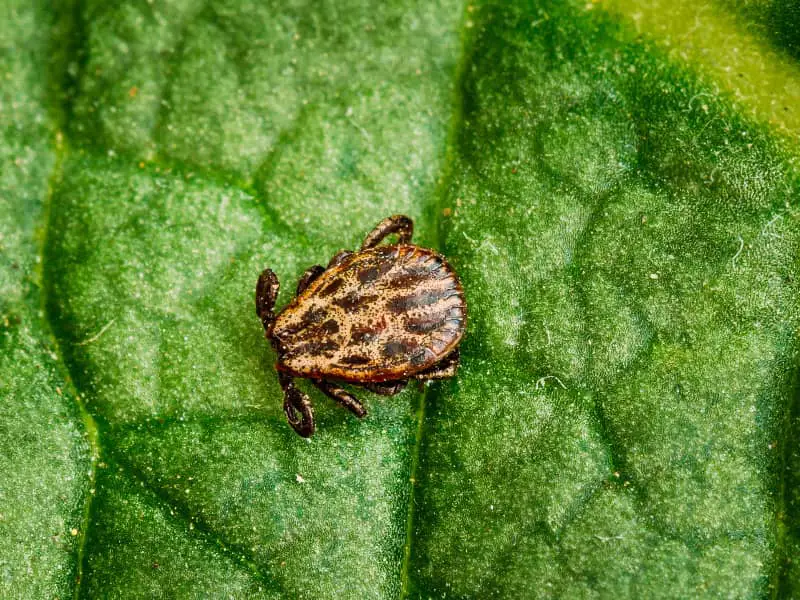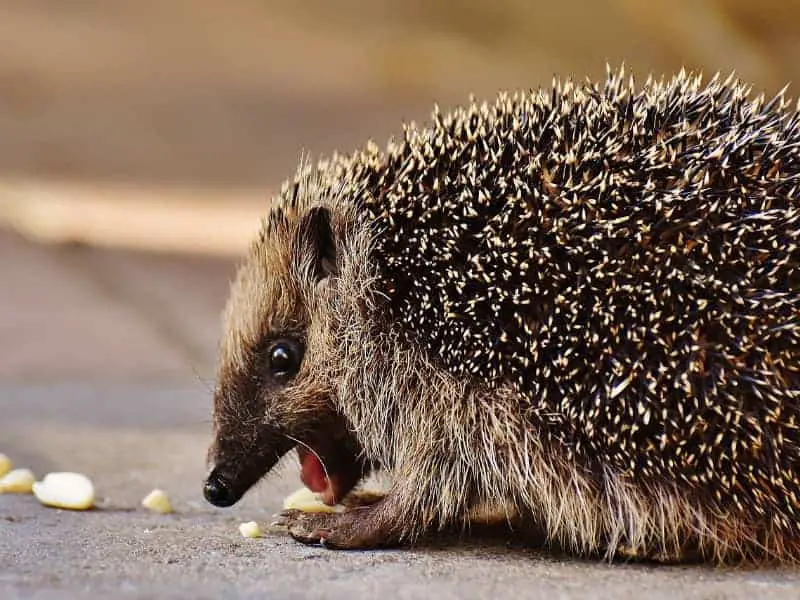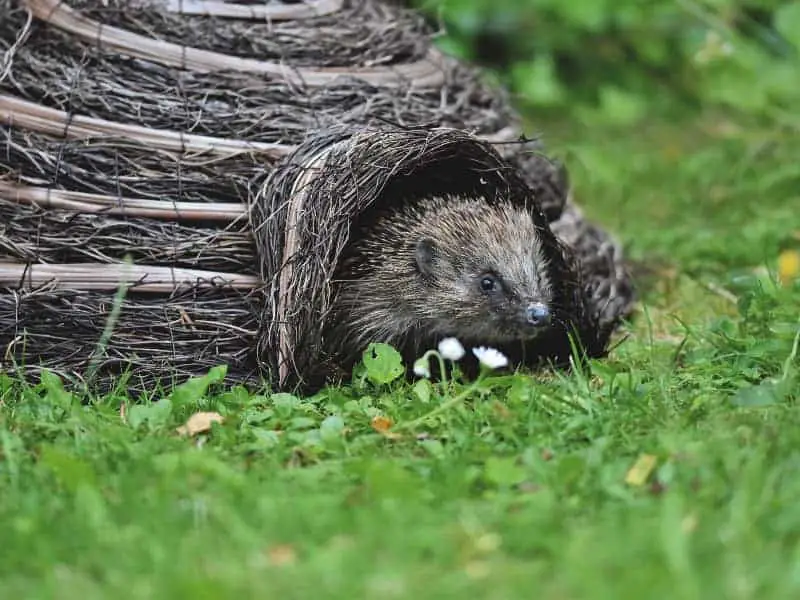
Can hedgehogs die from ticks?
The question "Can hedgehogs die from ticks?" may sound simple at first, but as with many questions involving wildlife-parasite interactions, the answer is anything but straightforward. In this blog post, we will explore the various facets of this issue.
Background information on hedgehogs and ticks
Hedgehogs are fascinating creatures native to many parts of Europe. They are known for their spiky fur and nocturnal forays. Ticks, on the other hand, are small, blood-sucking parasites that can transmit a range of diseases. Although ticks are often problematic for humans, it is important to clarify what effects they have on other animals, such as hedgehogs.
Hedgehogs' natural habitat varies, but they often feel at home in gardens and forests. This makes them potential victims for ticks that lurk in similar habitats. Ticks can be transmitted to hedgehogs when they sneak through tall grass, foliage or other tick hiding places.
Why is the question "Can hedgehogs die from ticks?" relevant?
The question of whether hedgehogs can die from ticks is not only relevant for animal lovers and conservationists, but also for people who welcome hedgehogs into their gardens. Ticks are not only annoying parasites, but can also transmit diseases such as Lyme disease. Therefore, it is of great importance to understand what the risk factors are for hedgehogs and whether ticks pose a serious threat to them.
Tick infestation in hedgehogs is a topic of much discussion in scientific research and among experts. Although most tick bites can be harmless to hedgehogs, there is always a risk that a bite could transmit disease. Understanding this risk is critical to establishing protective measures and treating affected hedgehogs.
Can hedgehogs die from ticks? - Hedgehogs way of life
A hedgehog's lifestyle can be critical in determining how susceptible it is to ticks and related health problems. We will look at this in more detail in the following section.
Where and how do hedgehogs normally live?
Hedgehogs are versatile animals that can cope in a variety of habitats. From forests and meadows to urban gardens, they can be found in many areas. However, they prefer places with plenty of hiding places to be safe from predators.
This often means that they stay in areas with dense undergrowth, foliage and other natural hiding places. Unfortunately, these are also the places where ticks lurk. Natural curiosity and foraging often lead the hedgehog through tick hiding places, which increases the risk of a tick bite.
Factors influencing the risk of ticks
In addition to habitat, there are other factors that can affect hedgehog tick risk. These include the time of year, the weather and the hedgehog's general health.
Ticks are particularly active in spring and summer, which increases the likelihood of a tick bite. The weather also plays a role: humid and warm conditions promote tick activity. A weakened immune system can also increase susceptibility to tick bites and possible diseases.
Hedgehog anatomy and physiology
The physical makeup of hedgehogs offers both advantages and disadvantages when dealing with ticks. Let's take a deeper look at these aspects.
Can hedgehogs die from ticks? - Protective mechanisms of hedgehogs
Hedgehogs are known for their spines, which serve as a natural protection against predators. You might think that these spines also protect against ticks, but the reality is more complicated. Ticks are very adaptable and can find their way to the hedgehog's skin despite the spines.
The hedgehog's thick fur also provides some protection, but ticks specialize in working their way through such barriers. Therefore, the natural protection offered by the spines is not infallible. A hedgehog can be infested by ticks, especially on less protected areas of the body such as the ventral side.
Health effects of tick bites
The effects of a tick bite on a hedgehog can vary. While some hedgehogs survive tick bites without noticeable adverse health effects, others can be more seriously affected. A tick not only sucks blood, but can also transmit diseases such as Lyme disease.
Health problems can mainly occur when the hedgehog is already weakened or when the infestation is massive. For example, with a heavy tick infestation, the hedgehog may suffer from anemia, which in extreme cases can be fatal.

Precautions and first aid
Knowing about the risks of ticks is one thing, but what can be done concretely to protect hedgehogs? Here we go into important precautions and first aid in case of tick infestation.
What can be done to protect hedgehogs from ticks?
First of all, you can arrange your own garden or other hedgehog habitats so that they are less attractive to ticks. This means mowing tall grass and removing piles of leaves where ticks like to hide. Natural tick repellents that are harmless to animals can also be used for prevention.
Another step is education. If more people understand the risks ticks pose to hedgehogs, they can become more proactive in protecting the animals. This can range from conducting regular "hedgehog check-ups" to posting warning signs in areas of high tick risk.
How to recognize and treat ticks in hedgehogs?
Ticks are usually not easy to spot in hedgehogs, especially because of their spiky fur. A thorough inspection is therefore essential. If you find a hedgehog and suspect that it has ticks, you should pick it up carefully with gloves and examine the skin and the spines closely.
If you discover a tick, the next step is to remove it as soon as possible. This should ideally be done by a professional such as a veterinarian to avoid infection. If that is not possible, tick forceps can be used. After removing the tick, the area should be cleaned with a disinfectant.
Conclusion: Can hedgehogs die from ticks?
The question of whether hedgehogs can die from ticks is more complex than it first appears. While hedgehogs have biological mechanisms that provide them with some protection, they are still not completely immune to the risks that ticks pose. Various factors such as habitat, season, and general health can increase the risk of tick infestation and associated health consequences.
However, it is not only important to know the risks, but also to take preventive measures and know how to recognize and treat a tick infestation. Through educated action and proper precautions, we can help minimize the dangers to hedgehogs and improve their chances of a healthy life in our neighborhood.
Overall, it can be seen that to answer this question it is important to consider the biological aspects as well as the environmental factors and human influences. We can all contribute to promoting the health of hedgehogs in our environment and protecting them from the risks of tick infestation.
Author

-
Garden animal - A life with nature
Welcome to my animal blog! My name is Dirk and I am happy to take you on my journey through the fascinating world of animals and gardening.
Born 54 years ago, I have had an insatiable curiosity for the animal world around me since childhood. Although I have moved professionally in other industries, my true passion has always been animals and nature. It is remarkable how a small garden has become such an important part of my life.
Many of my fondest memories are associated with the animals that share our home. Whether it's the curious squirrels that scurry across the trees in the morning, the colorful variety of birds that visit our feeders, or the busy bees and butterflies that pollinate our flowers, every moment with them is invaluable to me.
This blog is my contribution to share my experiences, discoveries and insights with like-minded people. Here I will share stories of unforgettable encounters with animals, give tips on gardening and creating wildlife-friendly habitats, and take you on my journeys through nature.
Thank you so much for being here!
Cordial,
Dirk aka garden animal
Last posts
- 27. February 2024PetsVeganes Hundefutter – Grün und Gesund?
- 18. January 2024ChickensOregano für Hühner
- November 27, 2023HamsterDiurnal hamsters
- November 24, 2023HamsterHamster hammock






